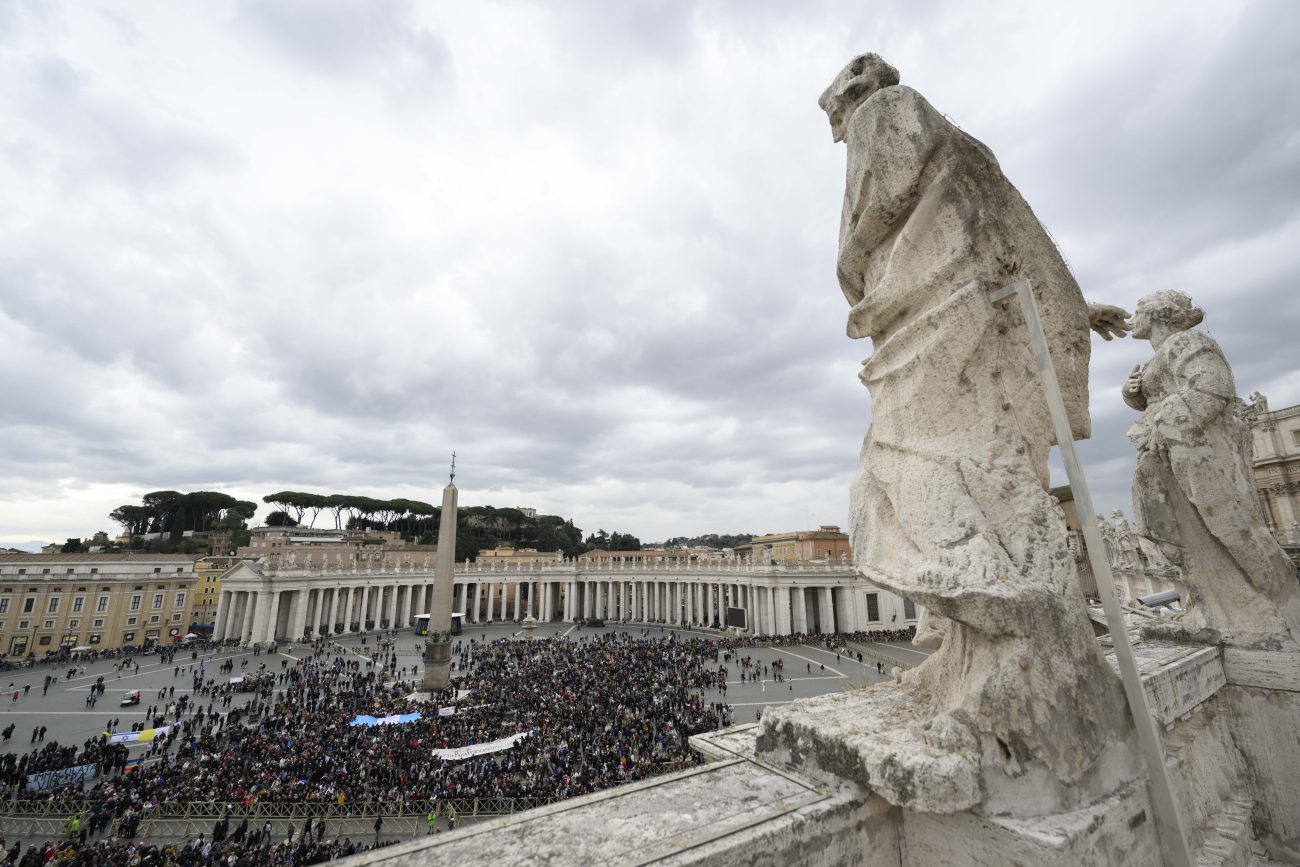VATICAN CITY (CNS) — On the day a ceasefire deal between Hamas militants and Israel went into effect, Pope Francis said he hoped all Israeli and Palestinian political leaders would support dialogue, reconciliation, peace and the existence of two states.
“Both the Israelis and the Palestinians need clear signs of hope,” he said after praying the Angelus at noon with visitors in St. Peter’s Square Jan. 19.
“I trust that the political authorities of both of them, with the help of the international community, may reach the right solution for the two states. May everyone be able to say: yes to dialogue, yes to reconciliation, yes to peace,” he said.
A ceasefire, mediated by officials from the United States, Qatar and Egypt, went into effect Jan. 19 in the hopes of ending a 15-month war triggered by a deadly attack by Hamas on Israel Oct. 7, 2023. The deal was to be carried out over the next six weeks starting with the release of some of the hostages by Hamas and the release of Palestinian prisoners detained by Israel. The agreement also included Israel withdrawing from some areas and allowing a massive increase in humanitarian aid into Gaza, followed by the freeing of all remaining hostages and a full Israeli withdrawal.
The pope thanked all the mediators for “a good job” mediating to bring about peace.
“And I also thank all the parties involved in this important result. I hope that what has been agreed will be respected immediately by the parties, and that all the hostages may finally return home and embrace their loved ones,” he said, adding that he prays a lot for the hostages and their families. “I also hope that humanitarian aid will reach the people of Gaza, who so urgently need it, even faster and in large quantities.”
Pope Francis also spoke about the ceasefire deal during an Italian television interview aired that evening, and specifically about the need for a two-state solution.
“The possibility exists! I also believe it is the only solution,” he said.
Some individuals are willing to accept a Palestinian state and others aren’t, he said without saying who. “And we have to convince (them), convince with that meek rhetoric” that is able to persuade those with strong convictions.
It takes courage to make peace, he said, adding that “often you lose something in order to make peace, but you gain much more.”
Some 146 countries, including the Vatican, recognize the State of Palestine while Israeli Prime Minister Benjamin Netanyahu is opposed to the creation of a Palestinian state.
PREVIOUS: Pope to Trump: May US Prosper, Shun All Hatred, Discrimination
NEXT: Pope to Media: Share Hope, Build Community, Shun Aggressiveness




Share this story